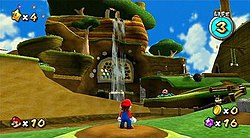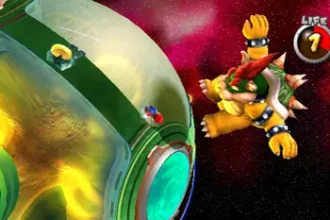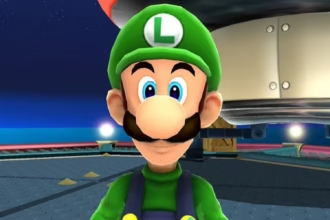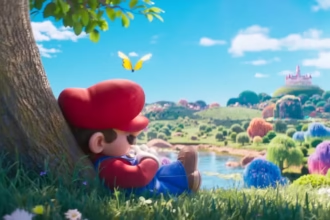Super Mario Galaxy, one of the most iconic titles in the Super Mario franchise, was developed by Nintendo and released for the Wii on November 1, 2007, in North America. This innovative game advanced the 3D platforming genre by introducing unique mechanics that allowed players to navigate spherical worlds. In this article, we will explore the game’s release history, its impact on the gaming industry, its groundbreaking gameplay, and its enduring legacy.
Related: World War Heroes Mod Apk for Android Download
The Release of Super Mario Galaxy
Super Mario Galaxy was first announced at E3 2006. Led by Kenta Motokura, the development team focused on leveraging the Wii’s motion controls and hardware. The game launched in Japan on October 11, 2007, followed by North America on November 1 and Europe on November 16, 2007. Its release during the holiday season positioned it for massive success.
Launch Variants and Editions
The game initially launched as a standard edition, but later saw bundles with the Wii console. In 2020, Super Mario Galaxy returned as part of Super Mario 3D All-Stars for the Nintendo Switch, giving new players the chance to experience the classic nearly 13 years after its debut.
Innovative Gameplay Mechanisms
One of the standout features of Super Mario Galaxy is its gravity-based platforming. Players traversed spherical planets with varying gravitational pulls, a mechanic that completely redefined traditional Mario gameplay.
Gravity Mechanics and Level Design
Each level was designed around gravitational effects, encouraging players to run along walls, ceilings, and oddly shaped surfaces. Pull Stars and Launch Stars seamlessly moved Mario between planets, fostering exploration and creativity.
Artistic Direction and Soundtrack
Super Mario Galaxy’s vibrant visual style and orchestral score elevated the experience. Its colorful planets, detailed character models, and whimsical aesthetic captivated players. The soundtrack, composed by Mahito Yokota and Koji Kondo, received widespread praise for blending playful melodies with sweeping orchestration.
Critical Reception and Awards
Super Mario Galaxy was universally acclaimed. With a Metacritic score of 97/100, it remains one of the highest-rated games ever. Critics praised its innovation, creativity, and genre-defining design.
Nominations and Awards
Super Mario Galaxy sold over 12.8 million copies worldwide and earned numerous awards, including:
- BAFTA Games Award for Best Game (2008)
- Game Developers Choice Award for Game of the Year (2008)
- NAViGaTR Console Game of the Year (2007)
The Impact on the Gaming Industry
The game’s success reaffirmed Nintendo’s dominance in platforming and influenced the design of countless titles. Developers were inspired to push non-linear gameplay, gravity-based mechanics, and deeper narratives.
Related: Last Day on Earth Mod Apk+Data for Android Download
Broader Implications for Game Design
Examples of its influence include:
- LittleBigPlanet – creativity and physics-based mechanics
- Journey – emphasis on exploration and emotional storytelling
- Celeste – precision platforming with layered themes
Legacy and Remakes
Super Mario Galaxy’s release on the Switch as part of Super Mario 3D All-Stars proved its timelessness. Updated visuals and performance showcased how its design continues to resonate, keeping it relevant in conversations about game quality and innovation.
Fan Community and Continued Relevance
The game’s fan base thrives through speedruns, Twitch streams, YouTube content, and fan art. This community-driven passion ensures its ongoing cultural presence in gaming.
Conclusion
Super Mario Galaxy is more than a 2007 release—it’s a landmark in gaming history. With its revolutionary gravity mechanics, artistic brilliance, and critical success, it stands as one of the greatest platformers ever made. As Mario continues to evolve, the lessons of Super Mario Galaxy will inspire developers and delight gamers for years to come.






